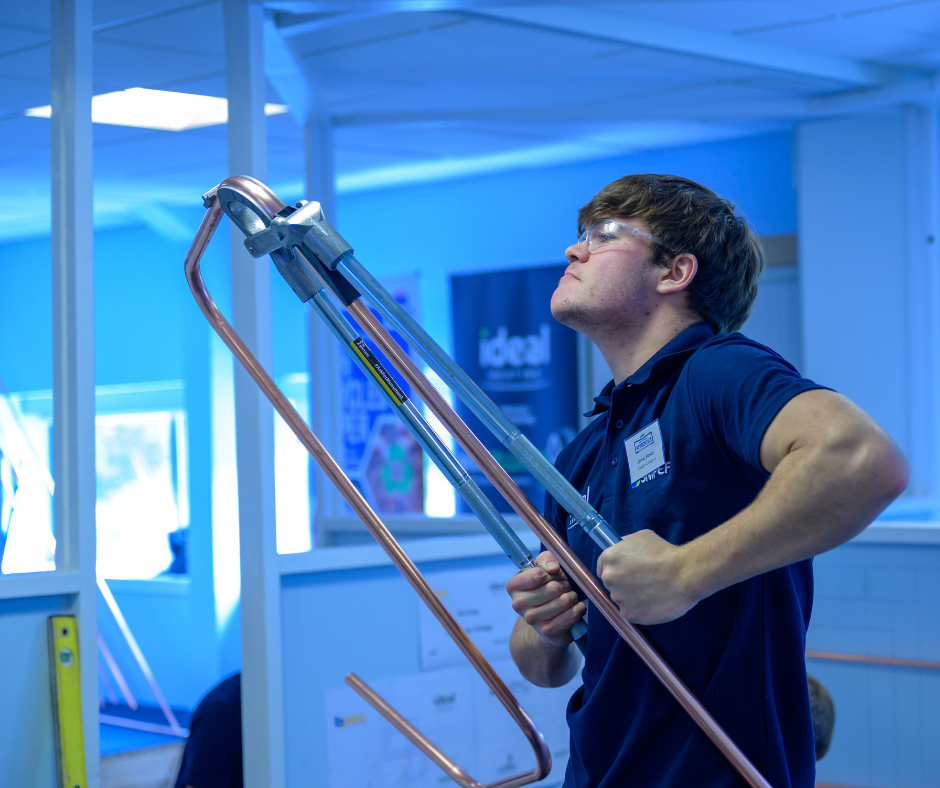BPEC invests £15,000 to modernise plumbing and heating apprenticeship

BPEC, the not-for-profit body supporting training and skills development across the UK plumbing and heating profession, is investing £15,000 to support the recently completed revision of the National Occupational Standards (NOS) for plumbing and heating, and to help take forward the ongoing work on the Framework and Assessment Strategy for the Scottish Plumbing and Heating Apprenticeship.
This investment will support work led by the Scottish and Northern Ireland Plumbing Employers’ Federation (SNIPEF), in collaboration with employers, apprentices, training providers, Skills Development Scotland, SQA Awarding, SQA Accreditation and wider industry stakeholders, to ensure Scotland’s plumbing and heating apprenticeship remains modern, credible and fit for future purpose.
Neil Collishaw, chief executive of BPEC, said: “BPEC’s charitable mission is to raise the knowledge and skills of the UK plumbing and heating workforce, and this investment directly reflects that purpose on multiple fronts. Supporting SNIPEF in this work will help ensure apprenticeships and standards remain the bedrock of our profession, as well as giving employers confidence, apprentices opportunity and consumers the assurance of high-quality work.
“The challenge is to ensure assessment models reflect real-world practice while upholding quality and consistency across the profession. This is about balancing rigour with reality.”
Stephanie Lowe, deputy chief executive of SNIPEF, welcomed the investment, saying: “This support will help ensure Scotland’s Modern Apprenticeship in Plumbing and Heating remains relevant, credible and inclusive, producing highly skilled professionals equipped to work on safety-critical water systems as well as supporting the continued transition to low-carbon and sustainable technologies.”
The Scottish Plumbing and Heating Apprenticeship is a four-year Level 3 programme, combining employment experience and training across plumbing and heating disciplines, including water, gas and low-carbon technologies. Completion ensures apprentices graduate fully qualified, with technical expertise, workplace competence and the confidence to meet the demands of a modern workplace.
Since late 2023, SNIPEF, in partnership with BSE Skills and a wide network of employers, apprentices, lecturers and stakeholders, has led a comprehensive review of the programme. Extensive consultation through workshops, surveys and working groups has ensured input from employers of all sizes, apprentices, advisory groups and industry bodies in shaping the outcomes.
The profession is also acting as a pilot for wider apprenticeship reform across other trades, including electrical and heating, ventilation and air conditioning (HVAC). Lessons from the review will help shape assessment models and frameworks across the broader construction sector.
Stephanie Lowe noted: “By leading this work, plumbing and heating is setting the standard for how apprenticeships should evolve to meet the needs of both the profession and government. It is a responsibility we take seriously, because getting it right will influence the future direction of training across our profession, and potentially others.”
The BPEC Charity has indicated it will provide further support as SNIPEF moves into the next phase of work, particularly on implementing the new Assessment Strategy.
Neil Collishaw added: “This is not just a one-off investment but the start of a continuing commitment. By working in partnership with SNIPEF and others, we can ensure the industry has the skills, standards and confidence it needs to thrive in a changing world.”
A key component of the investment is supporting the recently completed revision of the National Occupational Standards (NOS), ensuring they remain relevant to today’s plumbing and heating profession. NOS are central to apprenticeship and qualification development across the UK. They set out the performance, knowledge and understanding individuals must demonstrate in the workplace, and provide the framework for employer-led apprenticeships and industry-recognised qualifications.
Neil Collishaw concluded: “The National Occupational Standards are the foundation of our profession. They ensure consistency, quality and relevance in training, giving employers and apprentices confidence that the skills being taught reflect real industry needs.”

















